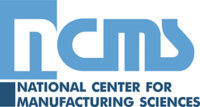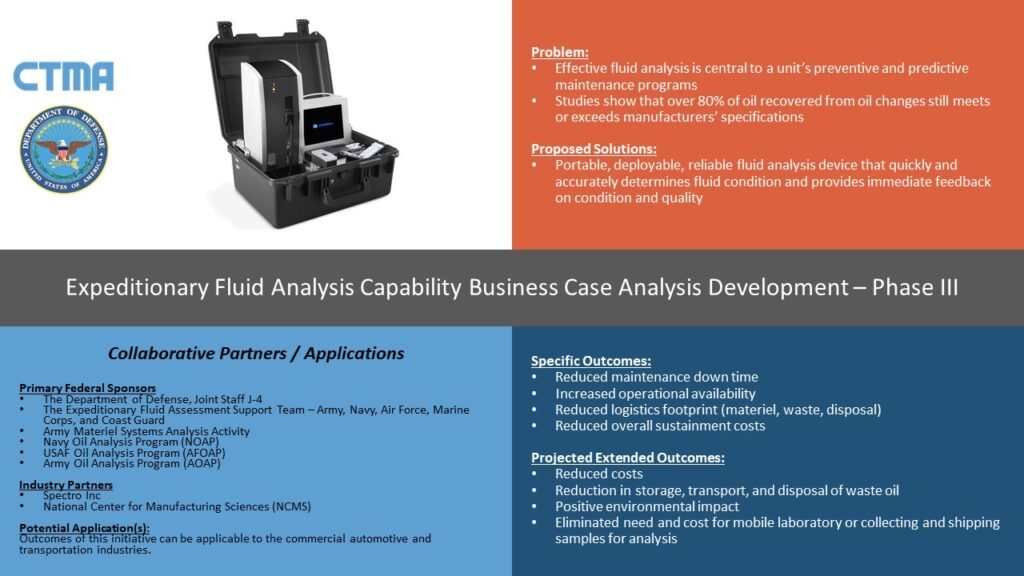CTMA Project #: 140837
Problem: The Expeditionary Fluid Analysis Capability (EFAC) offers participants a portable fluid testing and diagnostic tool that provides maintenance personnel with real-time assessments of equipment fluid condition. It quickly indicates pass or fail results along with the identification of contaminants that negatively affect fluid life and efficacy such as water or glycol contamination, or increased soot content. When approved by the evaluating service, the device may also utilize a remote-connect capability to virtually connect maintenance personnel to laboratory technicians and analytical processes at the Point of Maintenance (POM). Additionally, when this capability is approved by the evaluating service, the device has the ability to connect to an information network, either hardwired or wirelessly, to share test results as well as receive analytical support and feedback from traditional oil analysis laboratories. This ability extends laboratory capabilities and feedback directly to the location where fluid-related maintenance decisions are being made enabling a more effective use of time, labor, materials, and other resources at the unit level.
Benefit: Remotely located entities benefit by having a reliable, easy-to-use, in-house capability that provides real-time fluid analysis with minimal operating time lost eliminating the need (and costs) for a mobile laboratory or collecting and shipping samples for analysis. The device has the potential, in its simplest application, to provide lab-quality results in real-time for fielded personnel under urgent conditions.
Solution/Approach: In order for this capability to be fielded to the maintenance and sustainment community a Business Case Analysis with a return on investment must be developed under this Phase III initiative. It will validate industry offered EFAC capabilities against JOAP EFAC technical specifications.
Quad Chart:
Impact on Warfighter:
- Reducing maintenance downtime
- Increasing operational availability
- Reducing the logistics footprint (materiel, waste, disposal)
- Reducing overall sustainment costs
DOD Participation:
- Department of Defense, Joint Staff J-4
- S. Army Materiel Systems Analysis Activity
- Expeditionary Fluid Assessment Support Team
- Navy Oil Analysis Program
- Air Force Oil Analysis Program
- Army Oil Analysis Program
Industry Participation:
- Spectro Inc.
- NCMS
Benefit Area(s):
- Cost savings
- Repair turn-around time
- Maintenance avoidance and reliability
- Improved readiness
Focus Area:
- CBM+





